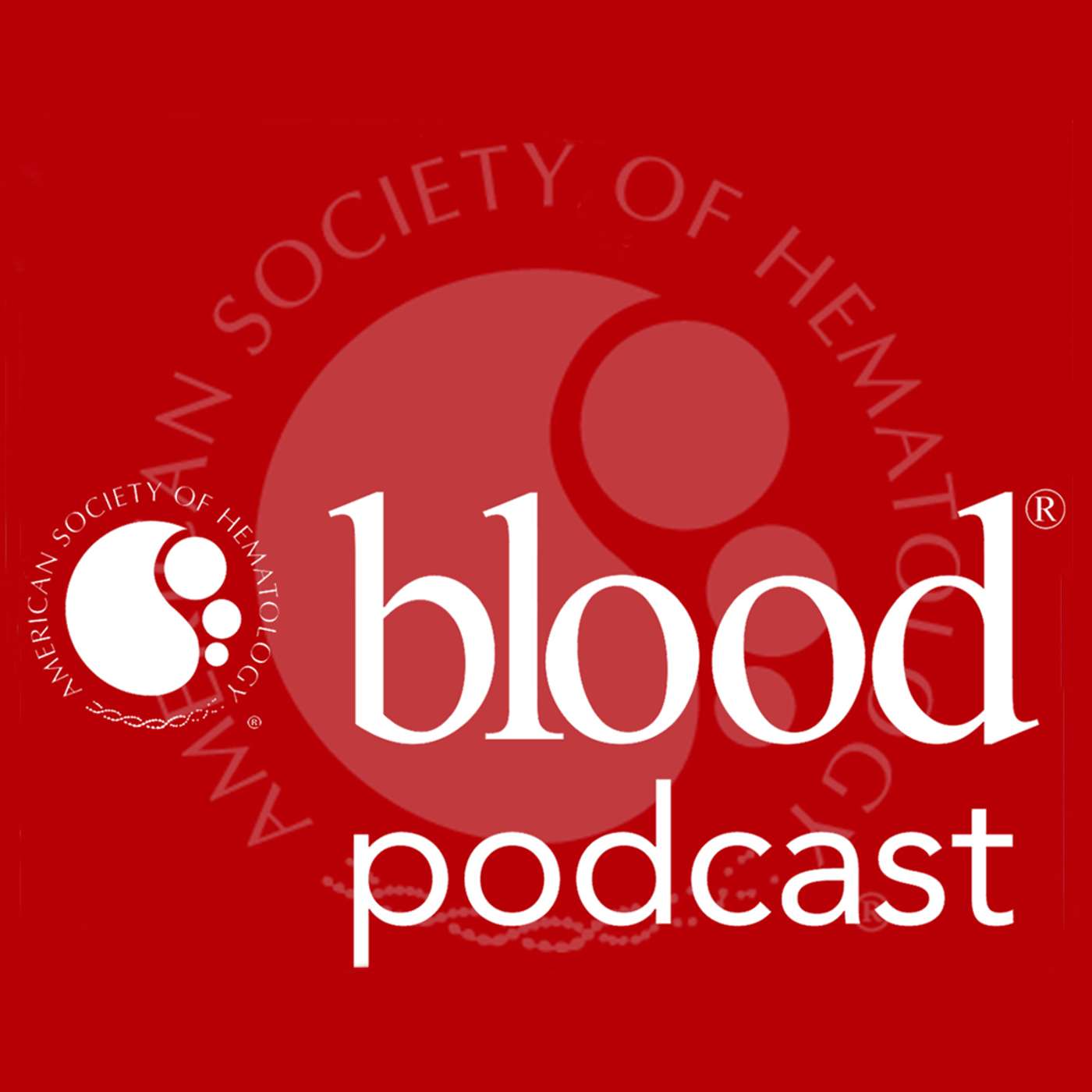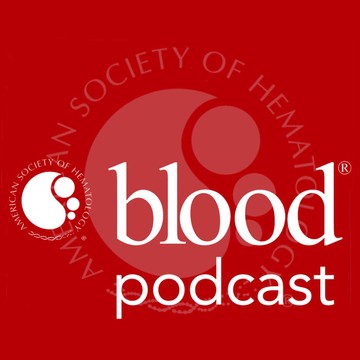

Blood Podcast
American Society of Hematology
The Blood Podcast summarizes content recently published in Blood, the most cited peer-reviewed publication in the field of hematology.
Episodes
Mentioned books

Jun 17, 2021 • 22min
Season 2, Episode 24
In this week’s episode, we will review the role of the hypoxia pathway in regulating neutrophil migration, explore the relationship between endothelial extracellular vesicles and the hemostatic effects of clotting Factor VIIa, and finally look at long-term outcomes with the BTK-inhibitor acalabrutinib in treatment-naive chronic lymphocytic leukemia patients.

Jun 10, 2021 • 35min
Review Series on Platelets and Cancer
Platelets are critical for hemostasis and thrombosis, but recent research highlights their role in many other processes, including inflammation, wound healing, and lymphangiogenesis. In this episode, Drs. José López, Elisabeth Battinelli, Craig Williams, and Owen McCarty discuss the review series on platelets and cancer. The series focuses on the emerging role of platelets in cancer, influencing tumor growth and metastasis, immune evasion, and tumor angiogenesis. The reviews present the current understanding of mutual cross talk between platelets and tumors, communication mediated by RNA transfer and extracellular vesicles, and the potential of antiplatelet agents for cancer treatment.Review Series on Platelets and Cancer

Jun 10, 2021 • 20min
Season 2, Episode 23
In this week’s episode, we will review a study demonstrating low rates of response to the Pfizer-BioNTech COVID-19 vaccine among patients with chronic lymphocytic leukemia, review a study looking at associations between post-transplantation cyclophosphamide and cytomegalovirus infection according to donor source, and look at new research indicating that abnormal venous calf muscle pump function in the legs is a risk factor for venous thromboembolism (VTE) and predictor of all-cause mortality.

Jun 3, 2021 • 18min
Season 2, Episode 22
In this week’s episode, we will review a study in sickle cell disease patients reporting abnormal retention of mitochondria in circulating red cells and elevated mitochondrial DNA in plasma, learn more about the fate of FLT3-ITD clones in AML patients treated with midostaurin, and look at a study showing, for the first time, that selected elderly patients with newly diagnosed multiple myeloma benefit from modification of standard myeloma treatment based on the level of frailty.

May 27, 2021 • 17min
Season 2, Episode 21
In this week’s episode we will review a phase 1 clinical trial looking at novel fully humanized BCMA-targeting CAR in patients with relapsed or refractory multiple myeloma, discuss a plenary paper reporting that different lymph nodes from patients with follicular lymphoma often have distinct clones, and finally, examine a Letter to Blood reporting high levels of markers of complement activation in plasma during quiescent phases in catastrophic antiphospholipid syndrome patients.

May 20, 2021 • 20min
Season 2, Episode 20
In this week’s episode, we will examine the prognostic significance of co-mutations in IDH-mutated AML, explore an alternative method of warfarin monitoring, and finally, consider the role of tumor suppressor TP53 in determining response to venetoclax and related agents.

May 13, 2021 • 19min
Season 2, Episode 19
In this week’s episode, we will review a randomized phase 3 study of patients with high-risk peripheral T-cell lymphoma that compares results from autologous versus allogeneic stem cell transplant during consolidation, look at a report that examines the significance of ABO-incompatible platelet transfusion on outcomes after intracerebral hemorrhage, and learn about how immune dysregulation mediated by tumor interferon signaling and myeloid-derived suppressor cells is associated with CAR-T-cell resistance in large B-cell lymphoma.

May 6, 2021 • 20min
Season 2, Episode 18
In this week’s episode, we will review a prospective study suggesting that eculizumab discontinuation based on complement genetics is a reasonable and safe strategy in patients with atypical hemolytic uremic syndrome, examine a study that provides new insights into resistance mechanisms and immune evasion in T-cell acute lymphoblastic leukemia, and finally look at a research article describing a new disorder associated with variants in the TLR8 gene that is characterized by neutropenia, infections, lymphoproliferation, B-cell defects, and bone marrow failure.

Apr 29, 2021 • 19min
Season 2, Episode 17
In this week’s episode, we will review a study that focuses on the morphologic alterations of stored red blood cells, learn more about how T-cell activation profiles distinguish hemophagocytic lymphohistiocytosis and early sepsis, and, finally, look at a report that describes how the WNT signaling pathway is involved in sclerodermatous chronic graft-versus-host disease and can be blocked by available therapeutics.

Apr 22, 2021 • 20min
Season 2, Episode 16
In this week’s episode, we consider the role of MYC and BCL2 copy number variants in double-hit diffuse large B-cell lymphoma, explore megakaryocyte-biased stem cells in JAK2-mutated myeloproliferative neoplasms, and finally, we look at long-term outcomes with emicizumab prophylaxis in patients with hemophilia, which are even better than in the first reports.


